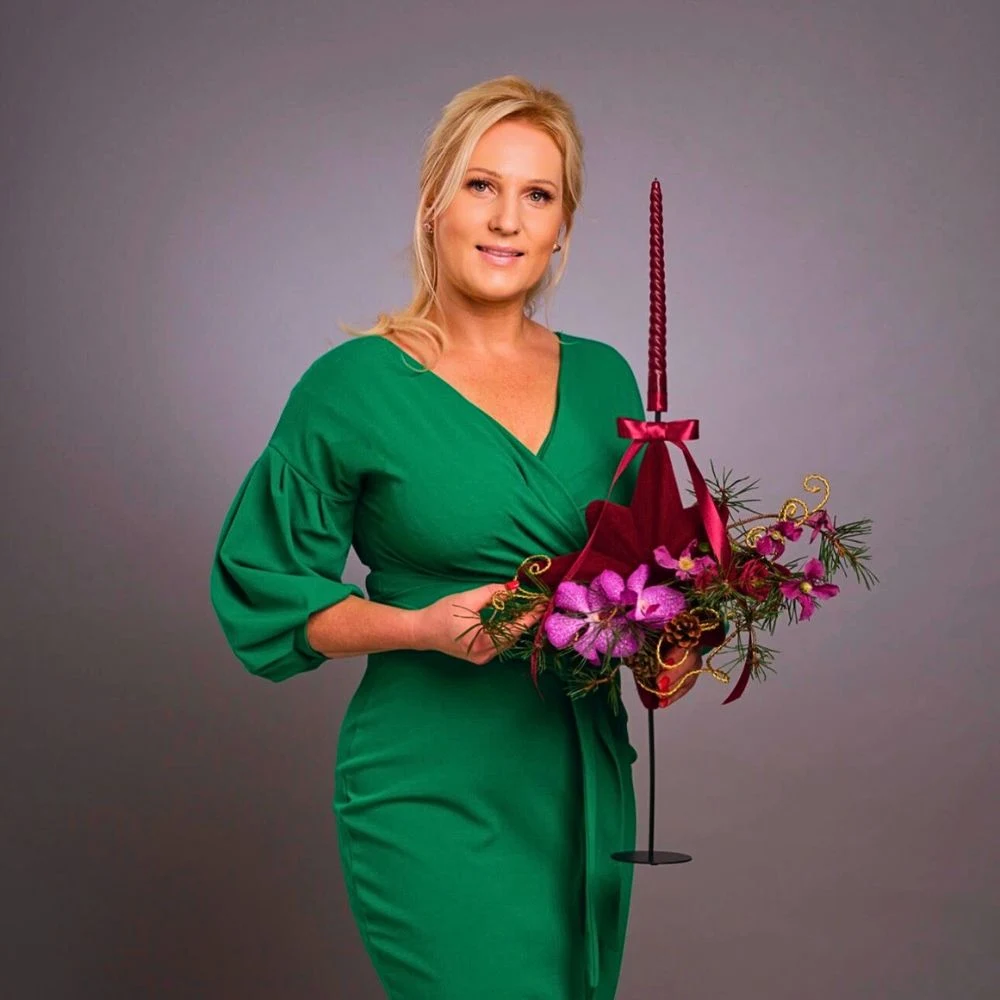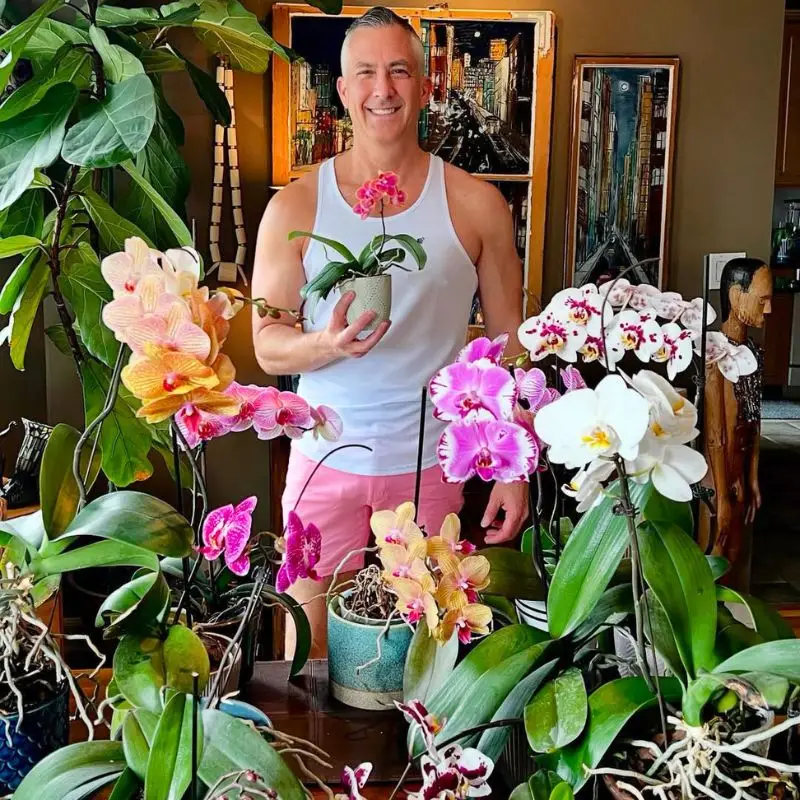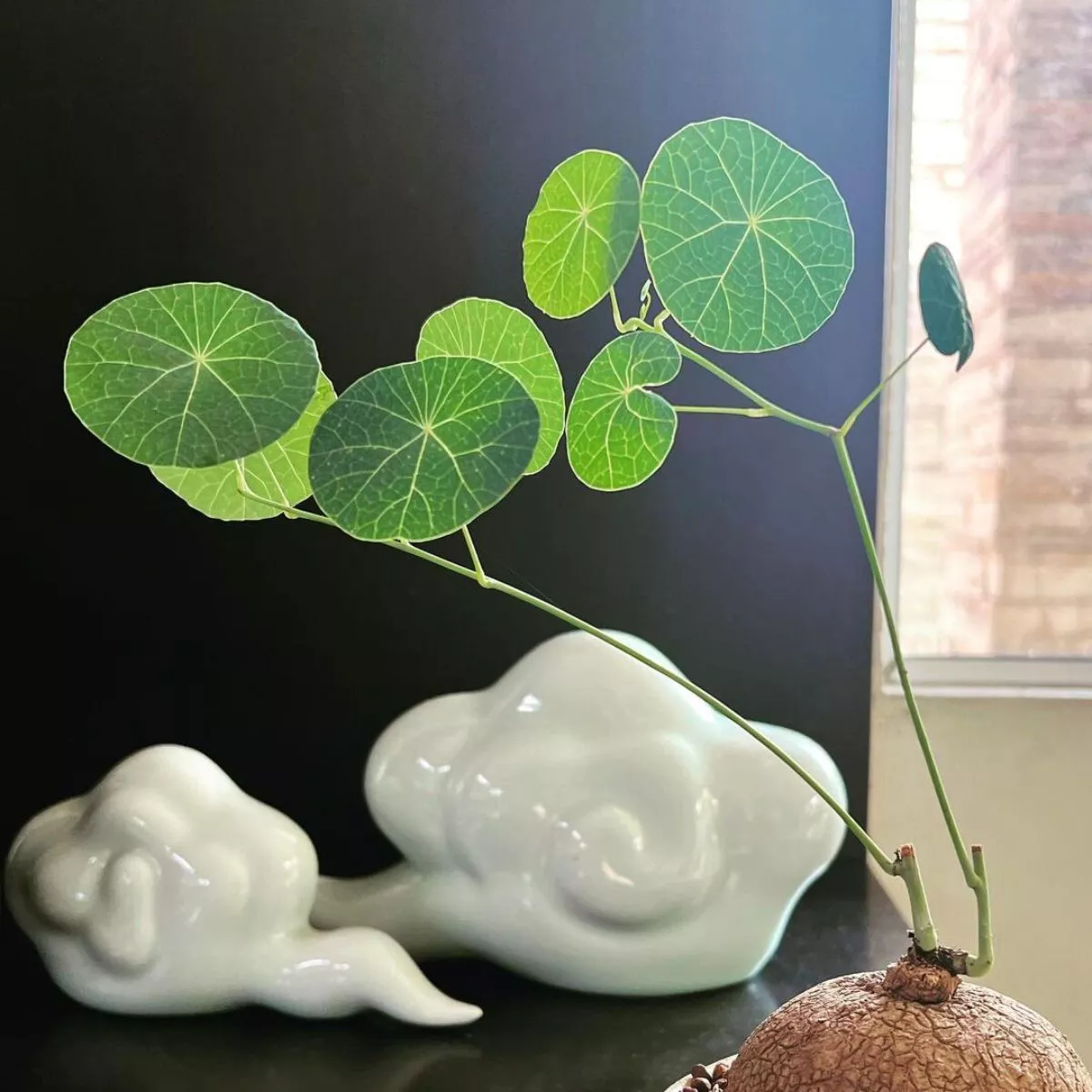Ansu Vanda is running again. Following a severe power outage in March that caused significant damage to the plants in one of the greenhouses, the company had to discard a substantial portion of its production. Now, a few months later, many new plants are growing, and a significant portion of the damaged crop is recovering. The Vanda orchids are producing again, and customers are returning with confidence.
The Fire Without Flames
In March 2025, a power failure caused the climate systems at Ansu Vanda to shut down. In just a few hours, temperatures inside the greenhouse rose so high that large numbers of plants were damaged beyond repair. The event gained national attention and was shared widely on social media. Many who saw the images reached out in disbelief. The loss was not just financial, but also emotional for the people working in the company.
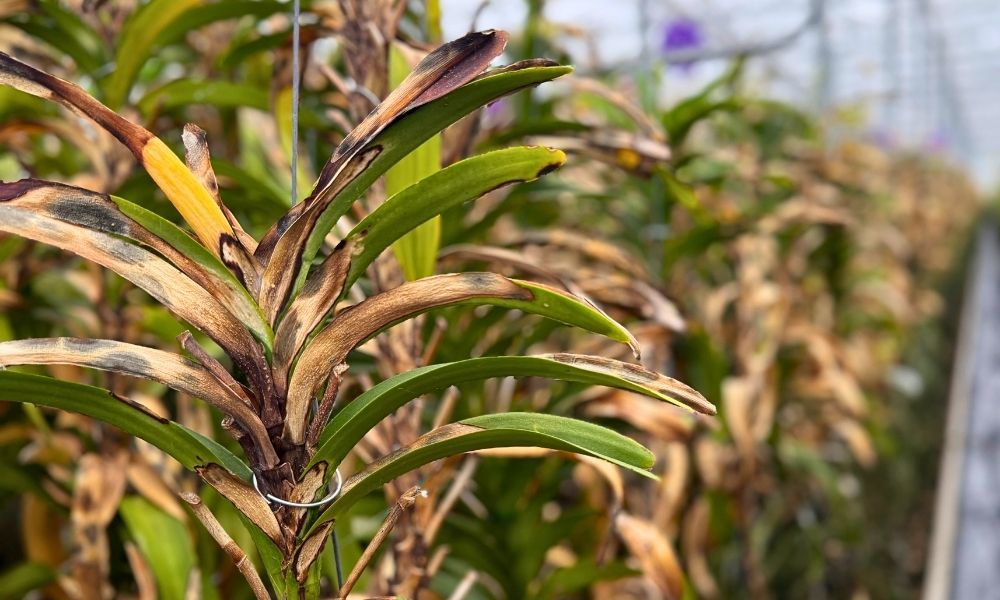
Instead of dwelling on the disaster, Ansu Vanda focused on recovery. They looked at what was still possible. What could be saved? What needed to go? And then, they moved on from there. The company's communication was transparent. No sugarcoating. Just the facts. That approach earned respect across the chain, from buyers to colleagues.
This is the video Steef van Adrichem, general manager, shared with their followers back in April this year:
Recovery Through Partnership
Key to the restart was a strong connection with the supplier of young plants. That supplier is also a shareholder in Ansu, making decisions faster and aligned. As a result, Ansu was able to secure tens of thousands of new plants within a matter of weeks.
Steef van Adrichem said:
"It was a matter of timing and trust, and we were lucky that there happened to be a large batch of Vanda Magic Blue available."
The new plants were put in place and picked up quickly. During the same period, the older plants that had survived the heat began to recover slowly. Together, they now form the new production base. Not all varieties came back. Some, like the Lava type, were lost completely and are not available as young material. Other types are back in limited volumes, with recovery taking months or, for some, even years.
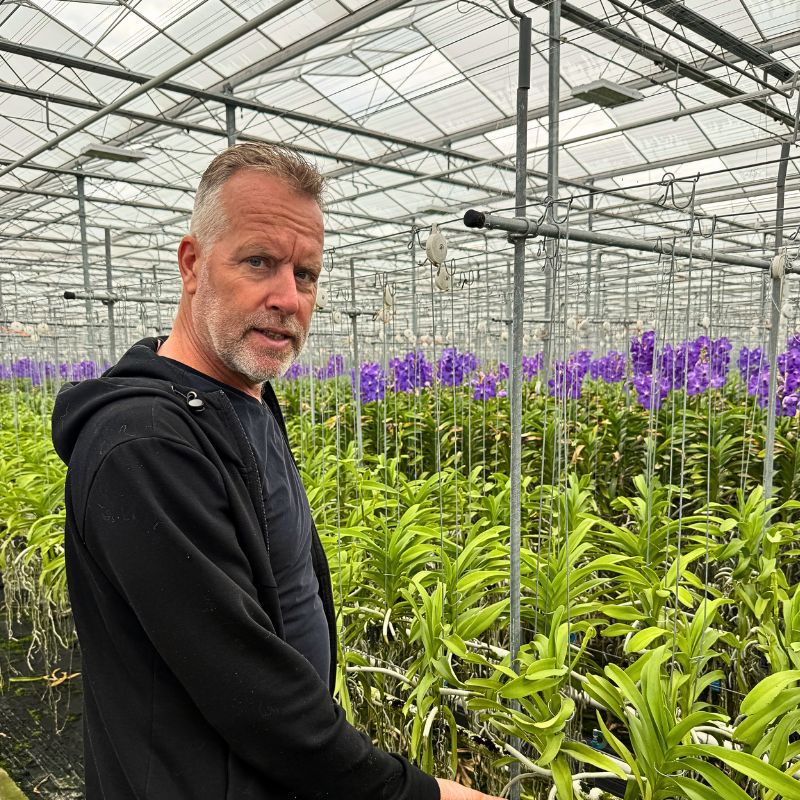
A Long Crop in a Short World
Vanda orchids are not short-cycle crops. Some varieties, like Magic Blue, remain productive for up to ten years. The plants in the greenhouses today are already six years old and still have a promising future. In a world that often focuses on quick turnover, Ansu works on a long horizon.
"If there are no more setbacks, these plants will still be working when I retire,"
Van Adrichem said with a dry smile.
There is little room for impulse. Every plant, every row, every decision comes with years of consequence. The incident in March was therefore not just a disruption—it was a serious test of long-term planning. But the scale and quality of the recovery suggest the company was well-prepared, even for this.

Technical Choices and Energy Logic
Part of Ansu’s strength lies in its ability to work with energy smartly. The greenhouse is equipped with a system that adjusts light and heating according to market demand for energy and weather conditions. When power is scarce, the lights dim. When power is abundant, the system uses more electricity and stores heat.
"You don’t just produce plants, you produce energy flows, too."
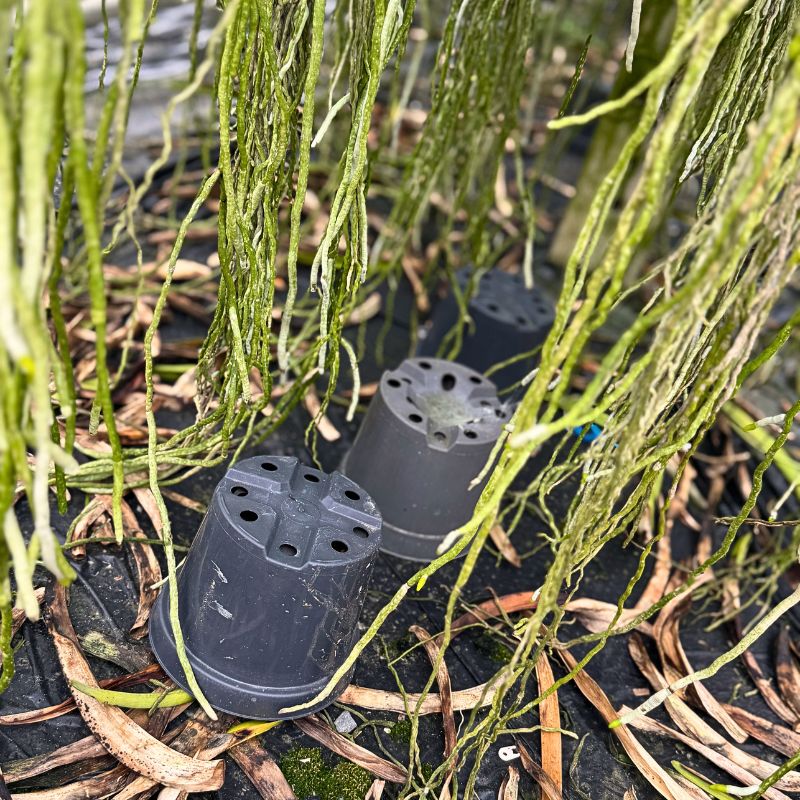
This technical setup made the recovery more efficient, but it’s also part of a bigger change. Ansu is moving toward biological pest control. Because chemical tools are less effective or no longer allowed, the company now works with large numbers of microscopic mites.
“There’s no other way, you either work with nature, or you fall behind.”
Clean Cuts and Hard Decisions
During the visit, it became clear how much of the production was written off. Thousands of plants were discarded because they were no longer commercially viable. But many others were kept, even if they looked rough. Some plants showed new roots. Some produced fresh branches. The head of crop management explained:
“We looked at every plant and asked a basic question: does it have a future or not?”

In some parts of the greenhouse, older plants are still hanging. Their leaves are scorched. But between the damaged parts, new shoots are forming. These plants might still deliver quality in the coming months. For now, they hold space. Time will tell whether they stay or go. In a few cases, rows were saved simply because they were in the shadow of a higher crop. Small margins made the difference.
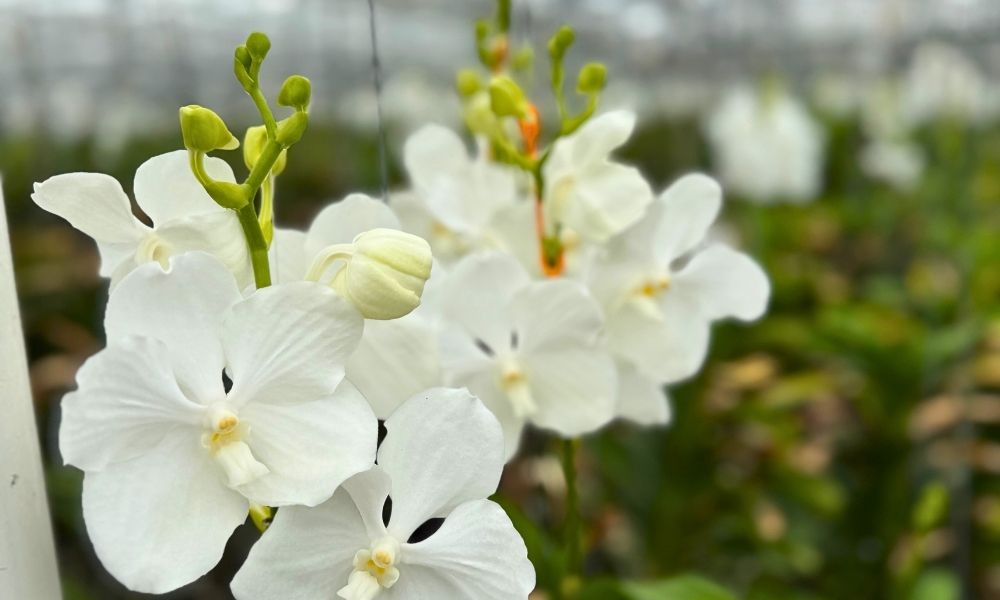
What Comes Next for Ansu
For now, Ansu Vanda is back to delivering. The Magic Blue is available again. Other colors will follow. There is no big marketing campaign. No loud statement. Just steady production and direct updates to customers. The damage was real. The response was practical.
“People want to see what’s there. What they can count on. Not what was lost.”
The plants speak for themselves. The heat still marks many. But they produce again, and the quality of the flowers is consistent. That’s what matters now. Behind the rows of orchids, there’s a team that handled a difficult period with focus and structure. Not every company recovers this fast. But then again, not every company is built like this.
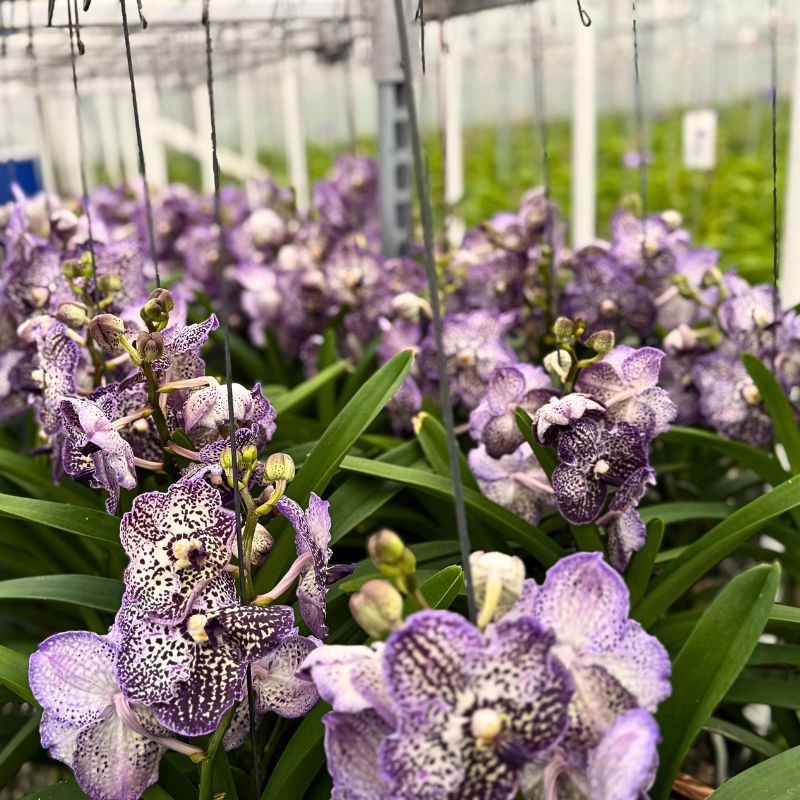
Why Ansu’s Recovery Matters for the Vanda Market
The return of quantity at Ansu Vanda—combined with consistent, high-level quality—sends a strong signal to the Vanda trade. After months of tight supply and uncertainty, buyers can rely again on a steady stream of well-graded stems. For exporters, this reduces risk. For florists and designers, it means renewed access to one of the most requested orchid types. During the shortage, prices rose and substitution increased. With production stabilizing, the market can now reset. Ansu’s fast restart also avoids long-term gaps in the availability of core varieties like Magic Blue, which would have impacted the assortment for years. This matters not only for today’s orders but for keeping Vanda relevant in premium floral programs worldwide.

Read More Stories on Thursd
The story of Ansu Vanda is not about flowers alone. It is about choices, timing, and long-term thinking in a sector that often deals with fragile living material. For those who want to understand how growers manage complexity, this case says more than any manual. Keep following stories like this one on Thursd.com.

.jpg)
